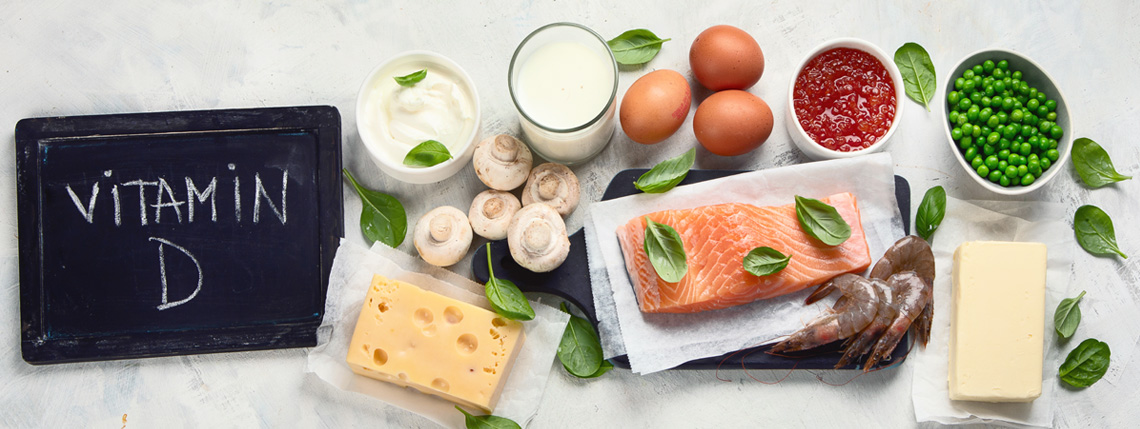Vitamin D levels are low in the UK mainly due to our lack of exposure to the sun. As lockdown continues, do we need to top levels up with a supplement?
Lockdown started on 23 March 2020 and at the time of writing is planned to continue until 9 May 2020. It has meant that many of us have spent more time inside than ever before and, even allowing for our daily exercise, we are at risk of becoming deficient in vital vitamin D3. We need exposure to UVB rays to enable our bodies to produce sufficient vitamin D.
Public Health England have updated guidance and are recommending everyone should consider continue taking the supplement, as the coronavirus lockdown has reduced the public’s sun exposure
At this time of the year we are usually exposed to more sunshine and less likely to see our vitamin D levels drop; however, according to the British Dietetics Association, “If you can, you should seek to spend some time outdoors in the sunshine (e.g., your garden or balcony). However, if you are having to self-isolate or if you are unable to go outside, you should consider taking a daily supplement containing 10 micrograms to ensure a healthy vitamin D status (for adults and children over the age of one).”
“From conversations with friends, colleagues and relatives there is a large number of people who are too frightened to go out at all, and so are not taking advantage of a daily exercise allowance. In addition, people who might normally spend more time outdoors are having to self-isolate, usually indoors, because other family members have displayed symptoms of coronavirus,” explains pharmacist Steve Simbler, a former head of the Olympics pharmacy team and now head of the sport division of Synergy Biologics, which produces a vitamin D supplement.
“It’s a vicious cycle in that many are suffering from low mood or depression exacerbated by the current Covid-19 threat, and then they are not getting out and topping up their vitamin D – and are therefore suffering worse symptoms brought about by insufficient vitamin D,” he adds.
Is it safe to take a supplement? “I strongly doubt there is any downside to taking 10mcg (or 400iu [International Units]) a day even through the summer,” says Simbler. And he adds, “Under existing NICE guidelines, the ‘at risk’ groups (darker skin, housebound, elderly, etc.) are already officially recommended to supplement all year round,” and he adds, “Those following vegetarian or vegan diets, or living in the far north, should also consider year-round vitamin D supplementation.” FitPro’s dietitian Linia Patel agrees with Simbler and she says, “Clinically I recommend taking a daily vitamin D3 supplement.”
Vitamin D is linked with the health of bone, muscles and teeth, as well as promoting a healthy immune system. But what about diet? Why do we need to supplement when vitamin D is found in oily fish, eggs, margarine, meat, milk and some breakfast cereals, infant formula or yogurts? “Getting vitamin D from food is difficult because vitamin D in food is D2 – it doesn’t matter how much mackerel you eat. It’s D3 we need, which is only really available from the sunshine or a supplement,” says Patel.
Even if you are getting outside, there’s no guarantee you’ll absorb enough of this vital vitamin. “As soon as you apply sunscreen, you are no longer able to absorb the vitamin D you need to keep your levels up,” says Patel. “And for most of us, the risk of skin cancer or simply getting burned would mean we may choose to apply cream,” she adds. “In the UK, from October to April, the elevation of the sun, even on the sunniest of days, is not high enough to allow enough UVB rays to react on our skin to produce vitamin D. Then, when the sun is actually high enough (i.e., now), we are told to cover up,” says Simbler. “However,” he adds, “short periods of sunscreen-free exposure should be encouraged.”
Useful Links:
- https://www.fitpro.com/blog/index.php/stay-strong-with-vitamin-d/
- Check out the Synbio Product Guide for a range of vitamin D products.
About author

Fiona Bugler is a fitness specialist with a background in journalism, PR and marketing. She is also a PT, group X instructor, and a running coach.
In 2012, Fiona co-founded the Fitness Writers’ Association and began working with fitness brands as a content marketing and social media consultant. Now she works with individuals and brands, and offers a one-to-one coaching service for those who want to get their story and brand known. She’s the creator of the online community endurancewomen.com which celebrates ordinary women being extraordinary, and shares stories, blogs, and training tips.







